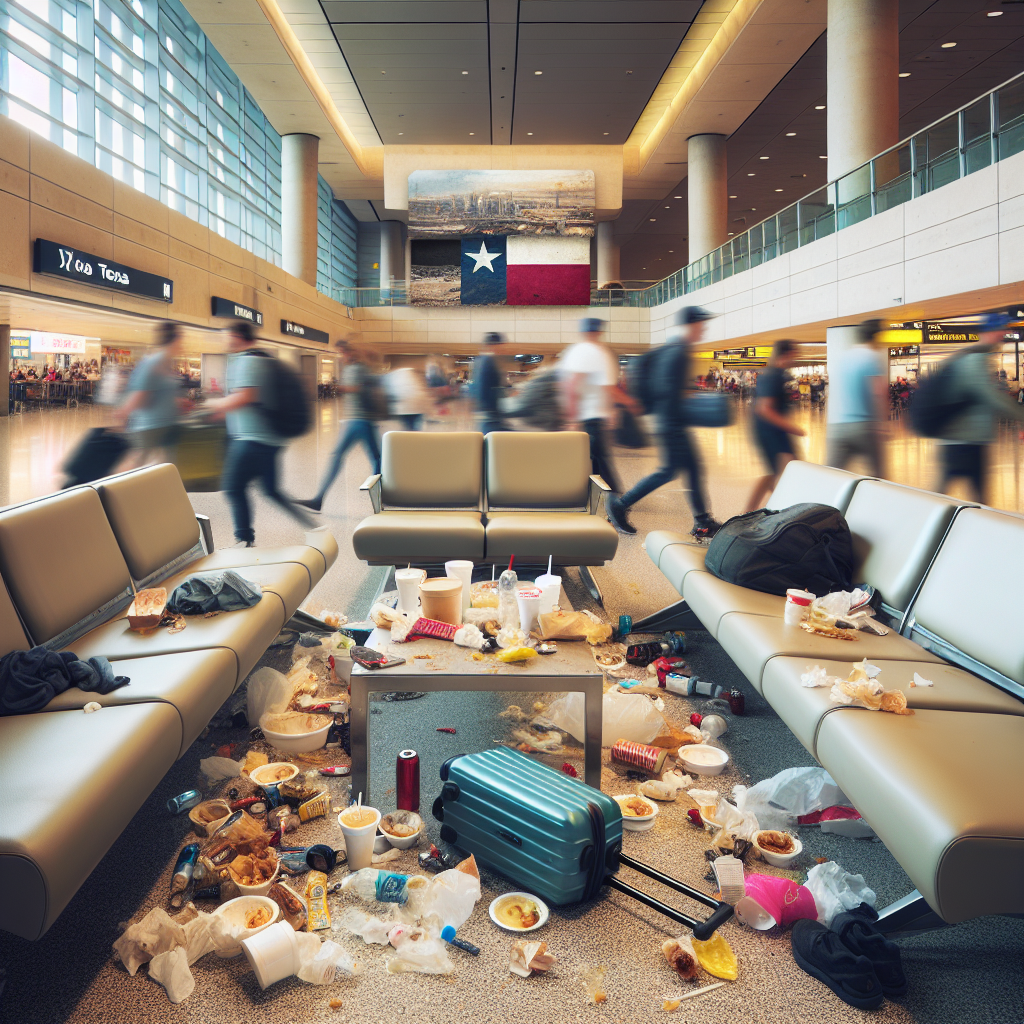
Understanding America’s Sky-High Travel Misbehaviors
An In-Depth Look at Travel Etiquette Across the States
Traveling by air is often necessary for many Americans, especially during festive seasons like Thanksgiving. It’s a time to reunite with family and explore new destinations. However, traveling is not without its challenges, particularly when it comes to passenger behavior on flights. A recent study by Solitaire Bliss sheds light on the mischievous travel habits that plague American air travel, ranking Texas as fourth for the nastiest travel habits.
Surveying Travel Behaviors: Methodology and Findings
Solitaire Bliss conducted a comprehensive nationwide survey to delve into travelers’ behavior at airports and on airplanes. By asking participants about their own actions, what they’ve observed, and which airline behaviors they find most problematic, the study offers a detailed insight into passenger etiquette—or lack thereof.
The Naughty List of Air Travel Habits
The survey gathered data on American travelers’ confessed habits, identifying the behaviors most likely to annoy fellow passengers:
- Putting bags on seat terminals: 51.40%
- Reclining seat without asking: 38.31%
- Not putting cell phone on airplane mode: 37.46%
- Flatulence in seat or cabin: 32.72%
- Leaving garbage in seat pocket: 32.57%
- Asking to trade seats on plane: 25.02%
- Lying down in terminal: 23.63%
- Using both armrests if not in the middle: 23.33%
- Legs in aisle: 20.23%
- Ignoring seat belt sign: 18.93%
- Pushing on the seat in front of them: 11.19%
- Drinking too much alcohol: 9.39%
- Wearing too much cologne or perfume: 8.29%
- Barefoot on the plane: 5.89%
- Bringing smelly food on the plane: 5.54%
These behaviors not only create discomfort but also contribute to an unpleasant travel experience for everyone on board.
Observed Misbehaviors: What Travelers Witness
Beyond personal admissions, the study also collected data on what rogue travelers witness while flying. The following list shows the most commonly observed travel misbehaviors:
- Reclining seat without asking: 75.47%
- Loud phone use in the terminal: 74.08%
- Putting bag seats in terminals: 72.73%
- Leaving trash in seat pockets: 71.68%
- Asking to switch seat on planes: 66.08%
- Pushing on seat in front of them: 63.54%
- Lying down in terminal: 63.14%
- Ignoring seat belt sign: 62.44%
- Legs in aisle: 60.29%
- Loud phone use on the plane: 55%
- Wearing too much cologne or perfume: 50%
- Drinking too much alcohol: 45.95%
- Having body odor or smelling funky from not bathing: 44.86%
- Flatulence in seat or cabin: 43.66%
- Bringing strong-smelling food on the plane: 41.21%
- Barefoot on the plane: 40.41%
- Not putting phone in airplane mode: 39.46%
- Verbal confrontation with others: 37.16%
- Asking to cut in security line: 34.57%
The Impact of Bad Travel Behaviors: Why They Matter
Bad travel behaviors are more than mere annoyances. They can lead to tension, discomfort, and sometimes, altercations among passengers. Airlines face significant challenges managing onboard etiquette, balancing customer service with strict compliance to rules. Such behavior not only affects passenger comfort but can also impair flight crew efficiency and safety protocols.
State Rankings: Where Does Texas Stand?
Texas ranks fourth on the list of states with the worst travel behaviors, with a mischievous score of 86.18. While the Lone Star State prides itself on its friendliness and hospitality, it seems air travel is an exception to that rule. This ranking underscores the need for an enhanced awareness of travel etiquette among Texan travelers.
Promoting Better Behavior in the Skies
Encouraging better behavior within airports and on flights is crucial for a smooth travel experience. Here are a few ways passengers and airlines can work together to improve aviation etiquette:
- Passenger Education: Airlines can provide informative pre-flight videos or pamphlets detailing proper etiquette and the impact of disruptive behavior.
- Enhanced Training for Flight Crews: Equip airline staff with strategies to handle misbehavior effectively, ensuring safety and comfort for all passengers.
- Clear Communication: Airlines should consistently remind travelers about important rules, such as keeping phones on airplane mode and stowing personal items correctly.
- Rewarding Positive Behavior: Implementing small incentives for passengers who embody exemplary behavior could encourage others to follow suit.
Conclusion: Sky-High Standards for a Better Travel Experience
Travel etiquette may vary, but mutual respect and courtesy should be universal. By understanding the impact of our actions and striving for improvement, travelers can contribute to a more pleasant flying experience for everyone. Whether you’re a Texan boarding a flight or a frequent flyer from any state, let’s aim for a future where good manners soar as high as our travel aspirations.
Source: https://www.statesman.com/story/news/state/2024/12/02/nasty-airplane-travel-habits-texas-americans/76656557007/

